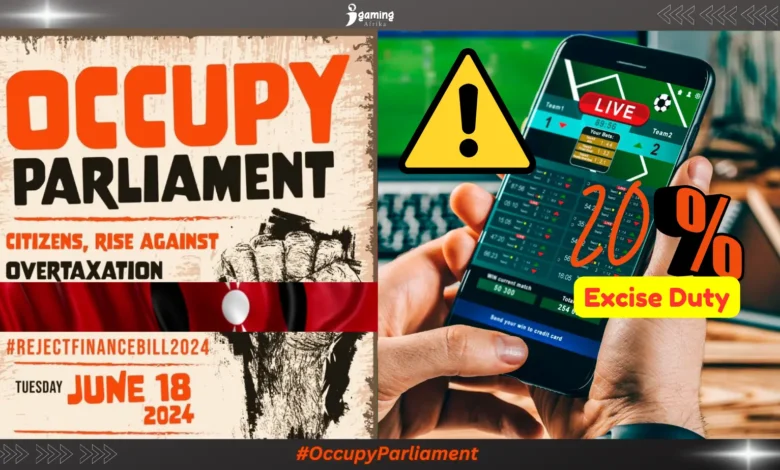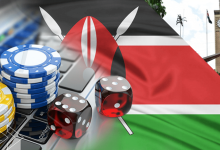The Looming Death of the Betting Industry in Kenya: Reject the Finance Bill 2024

On this day June 18th, 2024, I join the voices of thousands of Kenyans demonstrating outside the Kenyan parliament, united in opposition to the proposed finance bill 2024. Our collective goal is to persuade parliamentarians to reject this legislation, which would impose punitive taxes that would disproportionately harm and burden Kenyan citizens. As we work towards achieving this objective, I am compelled to address an urgent matter that requires immediate attention: the fate of Kenya’s betting industry.
In an open letter to the Kenyan government, I implore you to take action to prevent the imminent collapse of the gaming industry in the country. The proposed finance bill 2024 poses a significant threat to the very survival of this sector, which employs thousands of people and contributes significantly to the country’s economy.
The once-thriving sports betting industry in Kenya is on the brink of collapse due to punitive taxes imposed by the government over the past few years. The industry, which was a major employer of young people, has seen a significant decline in business, leading to widespread business shutdowns, job losses, and economic instability.
Prior to the introduction of heavy taxes, the betting industry was a significant contributor to the Kenyan economy, with many young people relying on it as a means of employment. However, since the introduction of excise duty on gaming stakes, many betting companies have been forced to close down or significantly scale back their operations. The excise tax has been steadily increasing over the past two years from 7.5% to 12.5% and now to a proposed rate of 20% in the finance bill 2024 that is now before the National Assembly.
Despite being a major sponsor of local football clubs and national teams, including the Kenya 7s rugby team, most betting sites were forced to leave Kenya due to the heavy taxation with those remaining unable to support the sports, music, art and culture sectors of the economy. The companys’ departure has left a gaping hole in the sports sponsorship landscape, with many local clubs struggling to find alternative sponsors.
The high taxation in Kenya is not only affecting local businesses but also serving as a bad precedent for other African countries which often benchmark their policies with Kenya’s. If unchecked, this trend may lead to the demise of entire industries in these countries.
The consequences of overtaxing the industry are far-reaching and devastating. With many young people now without jobs, there is an increased risk of crime and delinquency as they turn to illegal means of survival. Additionally, the government’s revenue from taxes will likely decline as more businesses shut down and people turn to illegal alternatives.
A worrying trend is the introduction of new taxes such as tax on stake on betting and gaming which is nothing short of an illegality. Taxation is supposed to be levied on income, which is (winnings less stake) and not on an investment capital. This move is a clear attempt to further strangle the industry and ensure its demise.
Read Also: Some Solutions We are Looking for Abroad May be Found Next Door: Clesio Dias
The government’s autocratic approach to public participation is also concerning. Public consultations are often used as a mere formality to fulfill constitutional requirements rather than genuinely seeking input from citizens.
In contrast, European countries have implemented clear and fair taxation policies that support responsible gaming while allowing businesses to thrive. For example, most Europen countries are only charging a unified tax on winnings for punters and a tax on gross gaming revenue for bookmakers.
The fate of betting companies that have closed down is dire. Many have laid off staff and are struggling to recover from the financial blow dealt by the government’s heavy taxation. The door is now open for illegal foreign companies to enter the market, potentially stealing market share from struggling local businesses.
Furthermore, there is a high risk that unlicensed sites will penetrate the market, further exacerbating the problems faced by legitimate businesses.
I urge the Kenyan government to reconsider its stance on taxing the betting industry. The current policy is unsustainable and will ultimately lead to devastating consequences for both businesses and individuals. We implore the government to adopt a more balanced approach that balances revenue generation with responsible gaming practices.
To avoid further economic instability and social unrest, i urge the government to:
1. Reconsider its stance on taxing stake and instead introduce a tax on income from winnings.
2. Implement a fair and sustainable tax rate that allows businesses to thrive.
3. Promote responsible gaming practices through education and awareness campaigns.
4. Provide support to struggling businesses and employees affected by taxation.
5. Engage in genuine public participation processes that prioritize citizen input.
The future of Kenya’s betting industry hangs in the balance. It is imperative that the government takes immediate action to address these concerns and ensure a sustainable future for all stakeholders involved.
I urge you to consider the long-term consequences of such a drastic measure and explore alternative solutions that balance the need for revenue with the need to protect vulnerable businesses and jobs.
Let us work together to safeguard the future of Kenya’s betting industry and ensure that our economy remains resilient and sustainable.
SAY NO TO THE FINANCE BILL 2024!






















